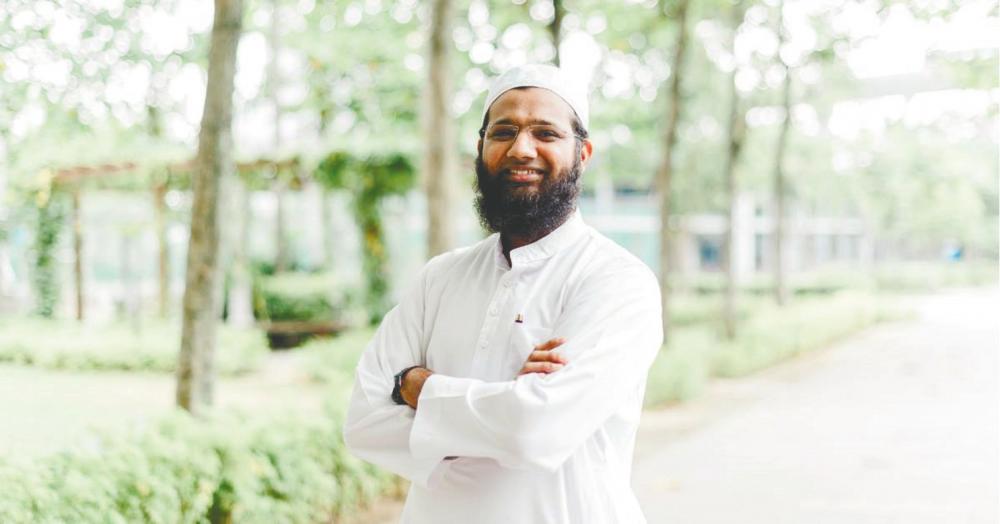For centuries, epilepsy has been viewed as a form of a mysterious supernatural trance. Such views, whether it is of divine origin or the result of possession by a demonic entity, were held even up to the mid-20th century. Some research institutions say that epilepsy exists in two parallel worlds – one of scientific advancements, and the other, a darker world of superstition and prejudice.
UCSF-Epilepsy Centre director Dr Danial Lowenstein calls it “the sacred disease”.
Researchers of Monash University Malaysia, Dr Mohd Farooq Shaikh, Dr Aiedah Khalek and Dr Tan Meng Yoe seem to concur with the idea that epilepsy is no more ‘sacred’ or divine than any other disease. The three researchers are looking to engage religious institutions to help raise awareness and provide education to reduce the level of discrimination against afflicted individuals.
Being a neuroscientist, Farooq is appalled at how epilepsy is represented in Malaysian society. He said: “In the case of epilepsy, every religion has some pockets of misinformation that causes them to discriminate against patients. What we are trying to do together is to use religious platforms to bring renewal to this mindset positively.”
He acknowledges that religion is culturally embedded in the lives of most Malaysians. Therefore, any information disseminated by religious leaders and institutions is prone to be accepted without question.
Unfortunately people can misconstrue these messages, and stigmatise individuals who suffer from epilepsy or HIV. According to him, this happens where there are influences from inaccurate and prejudiced sources.
There are said to be more than 50 million people worldwide who live with epilepsy. They have little to no control over their body, as the behaviour and duration of an epileptic seizure are unpredictable. Injuries to the brain at birth, certain genetic abnormalities, trauma from a blow to the head, or lasting damage from a stroke or infection may cause some cases of epilepsy. Still, for the rest, the causes for this seizure are unknown.
The sad part of all this is that some patients have come to view and accept themselves as social outcasts. This places them at a higher risk of depression, social isolation, anxiety, poor quality of life and other illnesses pertaining to low self-esteem.
Aiedah, an expert in Islamic religion and society study, feels this is a real community issue that must be addressed. She said: “Epilepsy is widely known as ‘sawan babi’, which translates to pig seizures in Malay. The name itself imposes a negative connotation and labelling, which is part of the stigma. Some [even] imply epilepsy to be demonic possession. They strongly believe it can only be treated using a religious approach. These beliefs and practices may deter the vulnerable group from seeking medical treatment.
“Based on previous studies and our observations in the community, we believe that society, in general, has a significant level of trust in their religious institutions.
“These institutions could work together with the health experts to shed light on this matter. It helps to know that nowadays, they are more open to educating society on many issues, including health.”
When asked about how they plan to handle any backlash against their efforts, Aiedah pointed out that as their team consists of researchers from multidisciplinary backgrounds – religion, medical science, and communication – they would find a way to bridge the gap and handle rejection amicably.
Tan, who is an expert in communication and online religion, said that one of the commonalities shared by the three researchers is that they each consider themselves religious individuals and recognise that spiritual leaders are very influential.
“Even in topics of health and sickness, it’s possible that Malaysian communities trust their spiritual leaders much more than they trust medical experts. That’s one of the things we are exploring. If proven true, the next step would be to see if it is more effective to use the existing platform of religious institutions to provide medical education and combat stigmatisation,” he said.
“We are not trying to debunk religious rituals or beliefs. We are hoping to provide additional and accurate information to these institutions, leaders, and communities, empowering them with a broader scope of understanding of stigmatised diseases,” Tan added.
This project recently received a research grant from the Global Asia in the 21st Century (GA21) research platform in the university, and is estimated to take a year to complete.
The team hopes that religious leaders will be provided with a basic understanding of various stigmatised diseases, to educate their congregations.
With their respective fields of expertise, this









